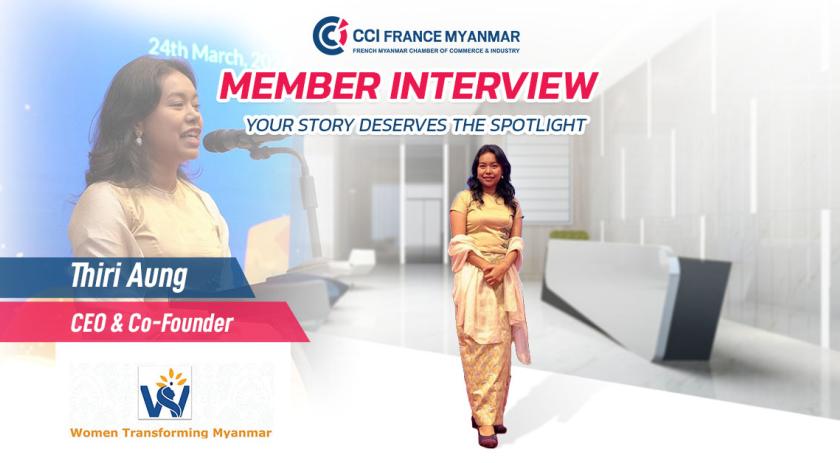
- Your journey has taken you from corporate life to running a successful upcycled furniture business, and now to founding WTM. What pivotal moments or personal convictions led you to launch Women Transforming Myanmar?
When I transitioned from corporate life to co-founding Mickey’s Real Wood in 2017, I quickly realized how isolating the entrepreneurial journey can be especially for women. There were no support systems, no networks, and very limited guidance available for small, emerging businesses in Myanmar. While established women’s organizations existed at the time, they often felt out of reach for grassroots entrepreneurs like myself.
Then came the COVID-19 pandemic and the political crisis, and I saw women rising to support their families by starting small businesses many with no access to resources, networks, or mentorship. That became a turning point for me. In 2020, I founded Women Transforming Myanmar (WTM) to ensure that women entrepreneurs would never have to navigate that path alone again.
2. WTM’s Transformative Feminist Leadership Program has reached hundreds of women online and in person. What kinds of changes have you observed in how participants lead, grow their businesses, or influence their communities since completing the training?
We’ve seen remarkable transformations. Many participants gain the confidence to formally register their businesses, access new markets, and even mentor others in their communities.
3. This year, you were honored as the SMEs Leadership Winner at the UN Women 2024 Asia-Pacific WEPs Awards, chosen from over 600 applicants across 21 countries. How did it feel to receive that recognition, and how does it reflect the deeper mission of WTM?
It was a deeply humbling and affirming moment, not just for me, but for every woman entrepreneur we serve. To be recognized among leaders across 21 countries validates the grassroots work we’ve been doing under extraordinary circumstances. It reinforces WTM’s mission and vision: to build inclusive, resilient business where women can lead boldly and sustainably.
4. WTM initiates the upcoming InspireHer: Women Returning to Work Innovation Program. What inspired this initiative, and what kind of long-term change are you hoping to create for women re-entering the workplace in Myanmar?
InspireHer was born out of countless conversations with women who left the workforce due to motherhood, political instability, or personal reasons and were unsure how to return. This program bridges that gap by offering career readiness training, mentorship, and company visits. Our goal is to normalize career breaks and ensure women are not penalized for them. We want to build a workforce culture in Myanmar that values diverse pathways and supports women in every life stage.
5. WTM stands at the intersection of business development, human rights, and gender equality. How do you support women entrepreneurs in building businesses that are both profitable and socially impactful?
We guide women to see profit and purpose as partners, not opposites. Through our trainings, we help entrepreneurs define their social mission, design inclusive workplaces, and engage in ethical sourcing and production. Many of our participants run businesses that support local artisans, reduce waste, or reinvest profits into community development. By framing social impact as a competitive advantage, we help them build businesses that are not only financially viable but community-centered.
6. You’ve worked closely with UN Women and developed a learning program for Myanmar’s micro, small, and medium business. How do you initiate and support women’s entrepreneurship journey through this online platform?
The Women’s Entrepreneurship course on UNDP’s eLearning platform was developed in collaboration with UN Women. While we were not involved in creating the platform itself, we facilitate training sessions that complement it focusing on areas such as financial literacy, market access, and self-reliance. Our approach typically begins with mindset and confidence-building, then progresses to technical and strategic skills development.
7. Finally, what message would you like to share with emerging female leaders and young changemakers in Myanmar who want to lead with purpose and resilience?
To every young woman who dreams of making a difference, know that your voice matters, and your path is valid even if it doesn’t follow tradition. Surround yourself with people who believe in you, and don’t be afraid to start small. Myanmar needs your ideas, your empathy, and your resilience, now more than ever.












